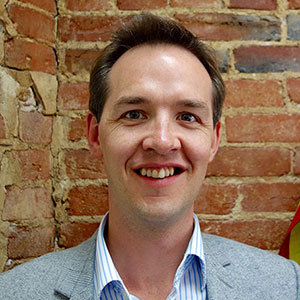In September 2017, Tim Shand joined Equimundo as Vice President of Advocacy and Partnerships. With over a decade of relevant experience, Tim will play a leading role in shaping the organization’s policy advocacy, partnership development, and fundraising strategy moving forward.
Originally from the UK, Tim joins the Washington, DC team with extensive leadership experience in programming, research, and advocacy to advance gender equality and social justice, particularly in the area of engaging men in advancing sexual and reproductive health and rights.
“I’m thrilled to be joining Equimundo. It’s a critical moment for work on gender justice and social inequalities within the US and globally. As a son, father and husband, I believe passionately in the importance of this work. I have been a fan of Equimundo for many years, and am looking forward to contributing to its future growth and impact.”
Prior to his role at Equimundo, Tim worked at Georgetown University’s Institute for Reproductive Health (IRH) as the Deputy and Technical Director of a large USAID-funded project focusing on social norms change to promote adolescent well-being. Tim has previously served as Director of International Programs for the South African nongovernmental organization Sonke Gender Justice; and he has worked with the International Planned Parenthood Federation and the World Health Organization.
“Tim has long been a leader in gender-transformative work in the public health field, from his work at Sonke Gender Justice, the International Planned Parenthood Federation, and IRH. With his dedication to reproductive and sexual health and rights and to gender equality, we are honored to have him join the Equimundo team,” said Gary Barker, President and CEO of Equimundo.
Tim has been published and spoken widely on issues of gender equality and sexual and reproductive health (SRH), and he holds a Master’s degree in Public Health from the London School of Hygiene and Tropical Medicine. Tim is currently completing his PhD at University College London’s Institute for Global Health, where his research focused on men’s SRH attitudes and practices in Malawi.
